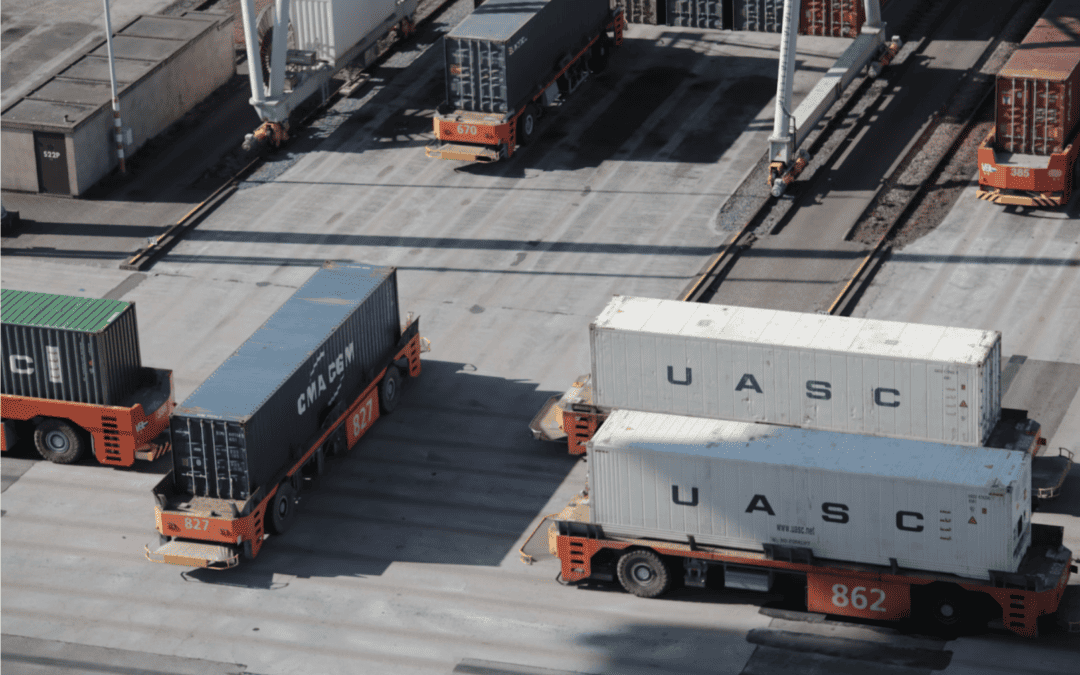Logistics has become increasingly important in today’s highly competitive business environment, impacting the fortunes of companies in all sectors. The successful running of modern businesses relies heavily on effectively managing the movement of commodities, information, and resources.
Hence, we’ll explain the significance of logistics in helping businesses thrive and prosper.
7 Ways Logistics Can Help a Company
1. Cost Optimization
One of the primary ways logistics helps businesses is by optimizing costs. Efficient logistics management, especially if you use route planning solutions, can significantly reduce costs. Businesses can reduce operational costs by streamlining transportation routes, minimizing warehousing expenses, and implementing inventory control systems.
As a result, this might improve margins and give you an edge in the market. Efficient logistics can result in significant cost reductions in labor, fuel, and maintenance, enabling organizations to organize their resources better and engage in growth-oriented endeavors.
2. Improved Customer Satisfaction
Improving customer satisfaction is significantly influenced by the logistics of the business. In today’s fast-paced world, consumers expect products to be delivered quickly and reliably.
Efficient logistics ensures that products are delivered to customers on time, reducing the likelihood of stockouts and delays. And when customers are happy, they are more inclined to become repeat buyers and promoters of your business.
The importance of order fulfillment accuracy and timely deliveries in building customer trust and loyalty cannot be overstated. Businesses that excel in these aspects are likelier to thrive in a competitive market.
3. Market Expansion
Effective logistics can open up new opportunities for market expansion. With a well-structured logistics network, businesses can explore new markets and reach customers in distant regions. This expansion can be crucial for growth and profitability.
By efficiently managing the supply chain, businesses can reduce delivery lead times and expand their reach, capturing new customer segments and increasing market share.
4. Inventory Management
The administration of inventories is an essential part of the logistics process. Businesses often tie up a significant amount of capital in their inventory. Effective inventory management techniques, such as just-in-time (JIT) inventory systems, can help reduce carrying costs and minimize the risk of overstocking or stockouts.
Real-time inventory visibility and control are key in optimizing supply chain operations. By utilizing cutting-edge inventory management tools, companies better balance supply and demand and boost profits.
5. Sustainability
Sustainability is a key concern for businesses in today’s environmentally conscious world. Logistics can play a pivotal role in promoting sustainability initiatives.
Businesses can lessen their carbon footprint and contribute to a better planet if they optimize their transportation routes, cut emissions, and choose environmentally friendly materials for their packaging.
The significance of sustainable logistics practices in minimizing environmental impact must be considered. By incorporating sustainability into their logistics strategies, businesses fulfill their corporate social responsibility and attract environmentally conscious customers.
6. Competitive Advantage
A well-executed logistics strategy can provide a significant competitive advantage. Businesses that can deliver products faster and at a lower cost than their competitors are more likely to thrive in the market.
Logistics can be a source of differentiation in a crowded marketplace. Companies may stay competitive and responsive to shifting market conditions if they regularly assess and improve their supply chains and keep up with developments in their respective industries.
7. Risk Management
Logistics also plays a vital role in risk management. Unforeseen disruptions such as natural disasters, labor strikes, or supplier issues can disrupt supply chains. However, businesses with robust logistics systems can better mitigate these risks through contingency planning and alternative sourcing strategies.
The importance of risk management in logistics must be considered. Business with contingency plans are better equipped to handle unexpected challenges, ensuring business continuity even in adversity.
Final Remarks
Logistics is a cornerstone of modern business operations, offering numerous benefits that contribute to the success and competitiveness of businesses. From cost optimization and improved customer satisfaction to market expansion and sustainability, logistics plays a pivotal role in shaping the fortunes of enterprises across diverse industries.
By embracing logistics as a strategic asset, businesses can optimize operations, reduce costs, enhance customer satisfaction, and gain a competitive advantage. In an era where every aspect of business is interconnected, logistics remains a driving force that empowers businesses to thrive and prosper.








